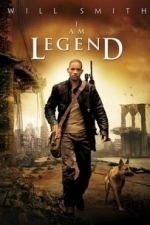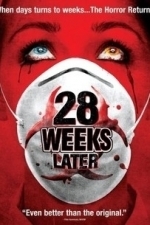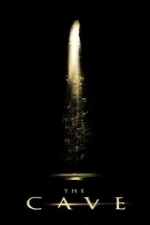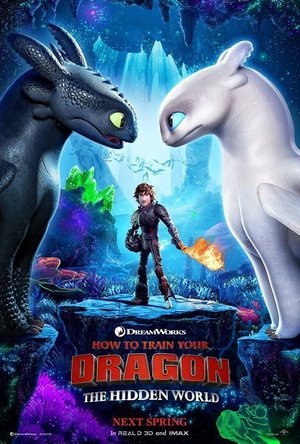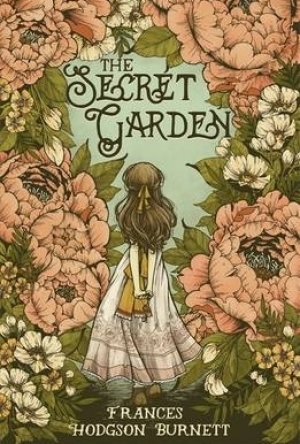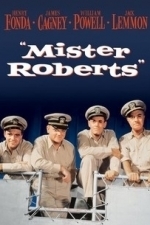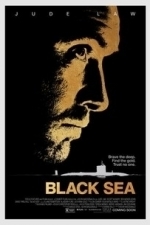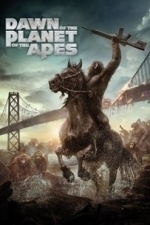Search
Search results
Gareth von Kallenbach (980 KP) rated I Am Legend (2007) in Movies
Aug 14, 2019
Dr. Robert Neville (Will Smith) is a man with a very unique and very dangerous situation. Once hailed as a savior to the human race, Dr. Neville now finds himself wandering the streets of New York, alone, save for the company of his trusted dog Sam.
In the new film “I Am Legend”, Will Smith finds himself in a world gone mad when a cure for cancer has mutated horribly and reducing infected populations to dangerous mutants who roam dark places destroying all they encounter.
With the back-story of the film told largely through flashbacks, it is learned that Dr. Neville was close to finding the cure for the outbreak, but when the virus became airborne, New York City was to be quarantined via Presidential order.
Unwilling to leave the city, as he is convinced a cure is to be found there, Dr. Neville, stays behind, and three years later is the sole survivor in a city that has become an overgrown and desolate wasteland.
Robert has become a creature of habit, as he hunts for food and useful items during the day, and in keeping with a broadcasted message, he appears at the docks every day in hopes that someone has heard his message and will be waiting for him.
Robert also amuses himself by renting movies at a nearby store and has positioned and named mannequins throughout the city in order to have some since of companionship and conversation, but it is clear that the years of isolation are starting to take their toll.
When night falls, Robert and Sam take refuge behind the reinforced shutters of their home, as dangerous bands of light sensitive mutants wander the streets at night, forcing him to stay inside until the safety of the morning sun arrives.
Robert gets a sense of hope, when he sees some potential from a new vaccine he has developed. While testing it on a captured mutant does not deliver the desired results, it does show promise that at last progress is being made in finding a way to eliminate the threat of the plague once and for all.
When a series of unexpected and surprising situations arise, Robert is forced to examine his priorities, and prepare for the ultimate confrontation if there is to be a future for humanity.
The film is the third film version of the book of the same name as Vincent Price started in “The Last Man on Earth”, and Charlton Heston gave a memorable turn in the classic “Omega Man”. Smith is solid in the role of a man driven by his desire to complete what he has started no matter the cost, even though he believes that humanity has already perished. He mixes pathos with humor, to create a sympathetic though flawed character that is unlike many of his likeable everyman roles.
At one time years ago, this film was considered as a vehicle for a pre-Governor Arnold Schwarzenegger, and it deftly mixes drama, suspense, and action to create a very memorable experience.
My biggest issue with the film was the finale, as up until that point, the film had been pacing itself to be a 2hr plus film, and it seems as if the filmmakers decided to wrap things up quickly, as the pacing of the film rapidly changed gears for what in many ways was a standard pat ending, that does not equal the quality of the first ¾ of the film.
That being said, if you can overlook the very disappointing finale to the film and focus on the solid premise and work of Smith, then you might find this one of the years more enjoyable films.
In the new film “I Am Legend”, Will Smith finds himself in a world gone mad when a cure for cancer has mutated horribly and reducing infected populations to dangerous mutants who roam dark places destroying all they encounter.
With the back-story of the film told largely through flashbacks, it is learned that Dr. Neville was close to finding the cure for the outbreak, but when the virus became airborne, New York City was to be quarantined via Presidential order.
Unwilling to leave the city, as he is convinced a cure is to be found there, Dr. Neville, stays behind, and three years later is the sole survivor in a city that has become an overgrown and desolate wasteland.
Robert has become a creature of habit, as he hunts for food and useful items during the day, and in keeping with a broadcasted message, he appears at the docks every day in hopes that someone has heard his message and will be waiting for him.
Robert also amuses himself by renting movies at a nearby store and has positioned and named mannequins throughout the city in order to have some since of companionship and conversation, but it is clear that the years of isolation are starting to take their toll.
When night falls, Robert and Sam take refuge behind the reinforced shutters of their home, as dangerous bands of light sensitive mutants wander the streets at night, forcing him to stay inside until the safety of the morning sun arrives.
Robert gets a sense of hope, when he sees some potential from a new vaccine he has developed. While testing it on a captured mutant does not deliver the desired results, it does show promise that at last progress is being made in finding a way to eliminate the threat of the plague once and for all.
When a series of unexpected and surprising situations arise, Robert is forced to examine his priorities, and prepare for the ultimate confrontation if there is to be a future for humanity.
The film is the third film version of the book of the same name as Vincent Price started in “The Last Man on Earth”, and Charlton Heston gave a memorable turn in the classic “Omega Man”. Smith is solid in the role of a man driven by his desire to complete what he has started no matter the cost, even though he believes that humanity has already perished. He mixes pathos with humor, to create a sympathetic though flawed character that is unlike many of his likeable everyman roles.
At one time years ago, this film was considered as a vehicle for a pre-Governor Arnold Schwarzenegger, and it deftly mixes drama, suspense, and action to create a very memorable experience.
My biggest issue with the film was the finale, as up until that point, the film had been pacing itself to be a 2hr plus film, and it seems as if the filmmakers decided to wrap things up quickly, as the pacing of the film rapidly changed gears for what in many ways was a standard pat ending, that does not equal the quality of the first ¾ of the film.
That being said, if you can overlook the very disappointing finale to the film and focus on the solid premise and work of Smith, then you might find this one of the years more enjoyable films.
Gareth von Kallenbach (980 KP) rated 28 Weeks Later... (2007) in Movies
Aug 14, 2019
After being ravaged by the deadly “Rage” virus in “28 Days Later”, the nation of England is taking it’s first steps towards recovery under a U.S. lead United Nations force.
In 28 Weeks Later, society is slowing starting anew as thanks to a repopulated military zone on the Isle of Dogs. When a plane of natives arrives with two children, a sense of hope accompanies them, as the return of children is seen as a sign that the crisis is over and a better future is at hand.
The children are soon reunited with their father (Robert Carlyle), who is struggling to cope with the death of his wife, lost to the infected hordes months earlier. The fact that he panicked and left his wife to her fate is a secret that he has lived with, still he feels compelled to tell his children that their mother died despite his best efforts to help her.
As children are prone to do, the two children become bored with living in a compound and sneak past the blockade into the outer areas of London, areas that have not been fully reclaimed since the attack, declared off limits due to safety concerns.
Undaunted, the duo return to their former home to collect some of their personal items and there they make a startling discovery. Their mother is alive, and has been holding up inside their house since being left for dead by their father.
Once returned to the compound, it’s discovered the mother is a carrier of the virus, but does not manifest the disease nor it’s symptoms. Fascinated that they may have found a way to create a vaccine for the virus, the leader of the military medical community passes along her findings to her commanding officer. Unswayed by the possibility of creating a vaccine should future outbreaks occur, the commanding officer decides to follow standing orders and eradicate all signs of the virus which means killing the children’s’ mother.
Before the military can take action, a chance encounter causes the virus to spread and before long, the military is taking up arms in an effort to control the disease that is spreading like wildfire amongst the survivors. In short order, it becomes impossible to control the
infected, and the decision is made to kill anything that moves, infected or not in an effort to contain the outbreak.
During the chaos, the children are taken under protective care of a lone soldier and the doctor who is convinced that the children may hold the key to defeating the virus in their blood and must be protected at all costs. What follows is a chaotic race to get the children to safety while avoiding the infected and the soldiers in a deadly race against time for their very survival.
Following up the classic first film is a difficult task, and while not as good as the original, the sequel for the most part works. The characters and plot are paper thin, even by horror film standards, and there is little effort made to give the characters any back story or motivation beyond survival. The film is essentially one long segment of characters fleeing, yet there are some amazing visuals and chilling moments that will delight fans of the series and genre.
The images of London in desolation and of gas and fire flowing through the streets are haunting, and provide a none to subtle reference to the situation in Iraq, of a nation out of control.
Director has done a solid job of crafting a modern horror tale of a world gone mad, that raises ethical questions that will stay with viewers after the films conclusion.
In 28 Weeks Later, society is slowing starting anew as thanks to a repopulated military zone on the Isle of Dogs. When a plane of natives arrives with two children, a sense of hope accompanies them, as the return of children is seen as a sign that the crisis is over and a better future is at hand.
The children are soon reunited with their father (Robert Carlyle), who is struggling to cope with the death of his wife, lost to the infected hordes months earlier. The fact that he panicked and left his wife to her fate is a secret that he has lived with, still he feels compelled to tell his children that their mother died despite his best efforts to help her.
As children are prone to do, the two children become bored with living in a compound and sneak past the blockade into the outer areas of London, areas that have not been fully reclaimed since the attack, declared off limits due to safety concerns.
Undaunted, the duo return to their former home to collect some of their personal items and there they make a startling discovery. Their mother is alive, and has been holding up inside their house since being left for dead by their father.
Once returned to the compound, it’s discovered the mother is a carrier of the virus, but does not manifest the disease nor it’s symptoms. Fascinated that they may have found a way to create a vaccine for the virus, the leader of the military medical community passes along her findings to her commanding officer. Unswayed by the possibility of creating a vaccine should future outbreaks occur, the commanding officer decides to follow standing orders and eradicate all signs of the virus which means killing the children’s’ mother.
Before the military can take action, a chance encounter causes the virus to spread and before long, the military is taking up arms in an effort to control the disease that is spreading like wildfire amongst the survivors. In short order, it becomes impossible to control the
infected, and the decision is made to kill anything that moves, infected or not in an effort to contain the outbreak.
During the chaos, the children are taken under protective care of a lone soldier and the doctor who is convinced that the children may hold the key to defeating the virus in their blood and must be protected at all costs. What follows is a chaotic race to get the children to safety while avoiding the infected and the soldiers in a deadly race against time for their very survival.
Following up the classic first film is a difficult task, and while not as good as the original, the sequel for the most part works. The characters and plot are paper thin, even by horror film standards, and there is little effort made to give the characters any back story or motivation beyond survival. The film is essentially one long segment of characters fleeing, yet there are some amazing visuals and chilling moments that will delight fans of the series and genre.
The images of London in desolation and of gas and fire flowing through the streets are haunting, and provide a none to subtle reference to the situation in Iraq, of a nation out of control.
Director has done a solid job of crafting a modern horror tale of a world gone mad, that raises ethical questions that will stay with viewers after the films conclusion.
Gareth von Kallenbach (980 KP) rated The Cave (2005) in Movies
Aug 14, 2019
Ever since the classic days of horror, one constant in film has been the time honored formula of a group of people trapped, and being stalked by sinister forces bent on their destruction.
Through countless monster films of the 40’s, 50’s, and 70’s this pattern has been a constant, ranging from Dracula to It: the Terror from Beyond Space which served as the inspiration for the genre classic “Alien”.
The breakout success of “Alien” vaulted the so called creature features from the status of matinee standard to mainstream release, which has seen varied success over the years on the big screen, but has been a fixture of cable and the home video market.
It is said that to all things there is a season, and this summer was no exception as the latest film in the genre, The Cave has surfaced at theaters after much delay due to constantly changing release dates.
The film tells of a group of explores headed by Jack (Cole Hauser), who venture to Romania to explore what is believed to be the largest underwater cave ever discovered.
In no time the team has established a base camp and ventures into the depths and finds themselves in a massive underwater cavern approximately two miles in after they had begun to explore.
A freak incident occurs trapping the group inside the unexplored cavern, which forces them to seek a new way out, as their supplies will run out in twelve days. This matter combined with the depth of their location makes a rescue difficult process, so despite reservations the team ventures even deeper into the unexplored cave.
Along the way, signs of human remains are found, which sets the group further on edge. A chance encounter with a cave dwelling creature leaves Jack injured and causes the team to look at his brother Tyler (Eddie Cibrian), to take charge, as there are those that start to believe Jack is no longer fit to lead the team. As the film unfolds a series of accidents and encounters with the bizarre creatures leaves the team diminished and in disarray, and in a bizarre twist, Jack has begun to deteriorate leaving people to wonder just how extensive the damage from his attack is.
What surprised me is that with an interesting premise and good supporting actors such as Morris Chestnut, and Piper Perabo just how dull and unsympathetic the characters were. We are told very little about them leaving their characters so paper thin, even by action film standards that it is very hard to have any sympathy for them, and care about their outcome.
What is an even bigger surprise is that the film for the most part is utterly devoid of any thrills, chills, or tension as it plods along failing to gain any modicum of suspense.
The so called finale was so by the numbers that it was in no way worth having to sit through 90+ minutes of uninspired acting, average effects, and groan inducing dialogue (“They can fly to”) that generated laughs during what is supposed to be a moment of intensity.
The creatures have some potential but we see so precious little of them, and based on certain elements of the plot, there is a lot more that needed to be said that was not.
The ending does leave the door open for a sequel but as this film is likely to be on my “Worst of the Year” list, lets hope they decide to delay this a few years which is what they should have continued to do with this bomb.
Through countless monster films of the 40’s, 50’s, and 70’s this pattern has been a constant, ranging from Dracula to It: the Terror from Beyond Space which served as the inspiration for the genre classic “Alien”.
The breakout success of “Alien” vaulted the so called creature features from the status of matinee standard to mainstream release, which has seen varied success over the years on the big screen, but has been a fixture of cable and the home video market.
It is said that to all things there is a season, and this summer was no exception as the latest film in the genre, The Cave has surfaced at theaters after much delay due to constantly changing release dates.
The film tells of a group of explores headed by Jack (Cole Hauser), who venture to Romania to explore what is believed to be the largest underwater cave ever discovered.
In no time the team has established a base camp and ventures into the depths and finds themselves in a massive underwater cavern approximately two miles in after they had begun to explore.
A freak incident occurs trapping the group inside the unexplored cavern, which forces them to seek a new way out, as their supplies will run out in twelve days. This matter combined with the depth of their location makes a rescue difficult process, so despite reservations the team ventures even deeper into the unexplored cave.
Along the way, signs of human remains are found, which sets the group further on edge. A chance encounter with a cave dwelling creature leaves Jack injured and causes the team to look at his brother Tyler (Eddie Cibrian), to take charge, as there are those that start to believe Jack is no longer fit to lead the team. As the film unfolds a series of accidents and encounters with the bizarre creatures leaves the team diminished and in disarray, and in a bizarre twist, Jack has begun to deteriorate leaving people to wonder just how extensive the damage from his attack is.
What surprised me is that with an interesting premise and good supporting actors such as Morris Chestnut, and Piper Perabo just how dull and unsympathetic the characters were. We are told very little about them leaving their characters so paper thin, even by action film standards that it is very hard to have any sympathy for them, and care about their outcome.
What is an even bigger surprise is that the film for the most part is utterly devoid of any thrills, chills, or tension as it plods along failing to gain any modicum of suspense.
The so called finale was so by the numbers that it was in no way worth having to sit through 90+ minutes of uninspired acting, average effects, and groan inducing dialogue (“They can fly to”) that generated laughs during what is supposed to be a moment of intensity.
The creatures have some potential but we see so precious little of them, and based on certain elements of the plot, there is a lot more that needed to be said that was not.
The ending does leave the door open for a sequel but as this film is likely to be on my “Worst of the Year” list, lets hope they decide to delay this a few years which is what they should have continued to do with this bomb.
Gareth von Kallenbach (980 KP) rated How To Train Your Dragon: The Hidden World (2019) in Movies
Jul 2, 2019
Universal Pictures is wrapping up its How To Train Your Dragon Trilogy with the release of the film: How To Train Your Dragon: Hidden World, set to release on Friday, February 22, 2019.
The film brings back the same core cast of characters as the previous two movies, with Hiccup (Jay Baruchel), Astrid, (America Ferrera), Valka (Cate Blanchet), Eret (Kit Harrington), Gobber (Craig Ferguson), Snotlout (Jonah Hill), Ruffnutt (Kristen Wiig), Tuffnut (TJ Miller), Fishlegs (Christopher Mintz-Plasse), and flashback appearances of Stoic (Gerard Butler).
The story opens on what is supposed to be a “stealthy raid” but isn’t, quite.
We learn that Hiccup and his band of friends (both Dragon and human) are on a continuous mission to rescue captured Dragons from the poachers determined to capture and exploit them.
Hiccup and his friends then bring the rescued dragons back to Berk which is now a “Dragon-Viking utopia”. This arrangement, however idyllic, does not appear to be sustainable in the long-term. It is crowded and messy and Berk is just simply running out of room to house any more Dragons! Astrid and Gobber are concerned that housing all the Dragons on Berk makes the settlement a target for the Dragon hunters, endangering the entire community.
Hiccup is still exploring and reading his father’s old records, and remains convinced that there is “more” out there. He enlists Astrid’s help in finding the hidden world where he believes that all of Berk could move to, with their Dragons to leave in peace and secrecy.
After an attack on Berk, the rest of the community is convinced that Hiccup is right (even as he is not fully convinced himself of his ability to lead them successfully) and agrees to follow him in his search for the Hidden World sanctuary.
The story follows them on their quest and the dangers and successes of the journey to find a new, more suitable home.
The music, animation, and scenery in this movie is great. The details are phenomenal, from the characters’ hair, to the movements of the Dragons, to the Hidden World cave details, really show the attention that was paid in making this movie stand out!
The story line itself, as a continuation of the previous two movies, flows well, and follows an appropriate arc, both as far as relationships as well as time.
The addition of a new Dragon, and the relationship that evolves between the Light Fury and Toothless brings a new level of evolution to the existing relationship between Toothless and Hiccup, and plays on the adage of “if you love something, set it free”.
I laughed throughout the movie, at the dragons’ antics and expressions and interactions with their humans and each other. I held my breath in anticipation at some aspects, and heard myself say ‘oh no!” under my breath at one point as well. Dragons 3 drew me in from the start, and didn’t let go till the very end of the credit rolled. (We stayed until the lights came back up, and even the credits had me smiling with their small surprises!)
I found myself both wishing that this installment wouldn’t be “the end” as well as acknowledging that this story provided a fitting end to the series of films.
If there MUST be an end, this film wraps up the story nicely and provides closure, while yet leaving enough room to imagine what might come next.
I would give this movie 5 out of 5 stars, and while we did not see it in IMAX or 3D, if you have those options available, I would recommend that as well!
The film brings back the same core cast of characters as the previous two movies, with Hiccup (Jay Baruchel), Astrid, (America Ferrera), Valka (Cate Blanchet), Eret (Kit Harrington), Gobber (Craig Ferguson), Snotlout (Jonah Hill), Ruffnutt (Kristen Wiig), Tuffnut (TJ Miller), Fishlegs (Christopher Mintz-Plasse), and flashback appearances of Stoic (Gerard Butler).
The story opens on what is supposed to be a “stealthy raid” but isn’t, quite.
We learn that Hiccup and his band of friends (both Dragon and human) are on a continuous mission to rescue captured Dragons from the poachers determined to capture and exploit them.
Hiccup and his friends then bring the rescued dragons back to Berk which is now a “Dragon-Viking utopia”. This arrangement, however idyllic, does not appear to be sustainable in the long-term. It is crowded and messy and Berk is just simply running out of room to house any more Dragons! Astrid and Gobber are concerned that housing all the Dragons on Berk makes the settlement a target for the Dragon hunters, endangering the entire community.
Hiccup is still exploring and reading his father’s old records, and remains convinced that there is “more” out there. He enlists Astrid’s help in finding the hidden world where he believes that all of Berk could move to, with their Dragons to leave in peace and secrecy.
After an attack on Berk, the rest of the community is convinced that Hiccup is right (even as he is not fully convinced himself of his ability to lead them successfully) and agrees to follow him in his search for the Hidden World sanctuary.
The story follows them on their quest and the dangers and successes of the journey to find a new, more suitable home.
The music, animation, and scenery in this movie is great. The details are phenomenal, from the characters’ hair, to the movements of the Dragons, to the Hidden World cave details, really show the attention that was paid in making this movie stand out!
The story line itself, as a continuation of the previous two movies, flows well, and follows an appropriate arc, both as far as relationships as well as time.
The addition of a new Dragon, and the relationship that evolves between the Light Fury and Toothless brings a new level of evolution to the existing relationship between Toothless and Hiccup, and plays on the adage of “if you love something, set it free”.
I laughed throughout the movie, at the dragons’ antics and expressions and interactions with their humans and each other. I held my breath in anticipation at some aspects, and heard myself say ‘oh no!” under my breath at one point as well. Dragons 3 drew me in from the start, and didn’t let go till the very end of the credit rolled. (We stayed until the lights came back up, and even the credits had me smiling with their small surprises!)
I found myself both wishing that this installment wouldn’t be “the end” as well as acknowledging that this story provided a fitting end to the series of films.
If there MUST be an end, this film wraps up the story nicely and provides closure, while yet leaving enough room to imagine what might come next.
I would give this movie 5 out of 5 stars, and while we did not see it in IMAX or 3D, if you have those options available, I would recommend that as well!
The Bandersnatch (199 KP) rated The Secret Garden in Books
Nov 7, 2019
Written and published in 1911 the secret garden started its life as a serialization ten issues of in The American magazine (November 1910-August 1911), before being published by the American publishers Fredrick A. Stokes in August 1911 and by British publishers Heinemann later that year. However Copyright expired in the states in 1987 and inmost other parts of the world by 1995 placing the book in public domain and resulting in several abridged and unabridged editions being published. The book has the theme of Rejuvenation and regeneration, showing that if something is neglected it dies and if its worked on and cared for it thrives (Like Mary, Colin and the garden do).
The story starts at the turn of the 20th century and follows Mary Lennox, a sickly and unloved child born abroad and brought back to her wealthy uncles house after a Cholera outbreak leaves her an orphan. As Mary gets used to her new isolated home she learns of a private walled garden once owned by her aunt forever locked by her uncle and hears crying which eventually leads to her cousin Colin. With Mary telling Colin stories about the moor, her friend Dickon and the secret garden she has access to, Colin is inspired to join her outside and as such both children improve beyond belief.
The books working title was Mistress Mary in reference to the English Nursery Rhyme Mary, Mary, Quite Contrary. Parts of the book was written during Burnett's visits to Buile Hill park, Maytham Hall in Kent, England. She'd lived there for a number of years and the garden was cited as influence for the book. Burnett herself kept an extensive garden however its noted besides the garden Maytham hall and Misslethwaite Manor are physically very different.
Having been marketed to both adults and children the reception may have been affected. The book was not as celebrated as Burnett's other books during her lifetime and paled in comparison to the popularity of her other books. The books revival could be traced by an almost complete eclipse at the time of Burnett's death in1924. With the rise of scholarly work in the past twenty five years the book has risen in popularity and prominence. Its often noted as amongst the best books of the 20th century. It ranked 51 in the Big Read (BBC Survey), was named amongst the Teachers top 100 books for children in 2007 and in 2012 ranked 15th in the all time children's novels in a survey published by School Library Journal.
There have been Six movies (1919, 1949, 1987, 1993 and 1994), a TV show (1975), a Musical (1989), an Anime TV series (1991), an Opera (2013), Even a colouring book published (2013) from the book each one with various degrees of popularity and success. There will be a new 'The Secret Garden' movie which is being produced by David Heyman and Rosie Alison with the Production company Heydey films and Studiocanal. Both Colin firth and Julie Walters are set to star as Mrs Medlock and Archibald Craven and the release date will be the 17th April 2020....I am very excited to go see it.
The Author is Francis Hodgson Burnett and her bio segment is in last Tuesdays book club on The Little Princess if you would like to read it.
MY OPINIONS
I came across the book after seeing the 1993 movie when I was 9/10 years old. I went looking for the book bought it and started reading. I really really like the book and I agree that the theme of rejuvenation and regeneration definitely runs through the book. I love this book and definitely will be reading it to my future children. I give this book 8/10.
The story starts at the turn of the 20th century and follows Mary Lennox, a sickly and unloved child born abroad and brought back to her wealthy uncles house after a Cholera outbreak leaves her an orphan. As Mary gets used to her new isolated home she learns of a private walled garden once owned by her aunt forever locked by her uncle and hears crying which eventually leads to her cousin Colin. With Mary telling Colin stories about the moor, her friend Dickon and the secret garden she has access to, Colin is inspired to join her outside and as such both children improve beyond belief.
The books working title was Mistress Mary in reference to the English Nursery Rhyme Mary, Mary, Quite Contrary. Parts of the book was written during Burnett's visits to Buile Hill park, Maytham Hall in Kent, England. She'd lived there for a number of years and the garden was cited as influence for the book. Burnett herself kept an extensive garden however its noted besides the garden Maytham hall and Misslethwaite Manor are physically very different.
Having been marketed to both adults and children the reception may have been affected. The book was not as celebrated as Burnett's other books during her lifetime and paled in comparison to the popularity of her other books. The books revival could be traced by an almost complete eclipse at the time of Burnett's death in1924. With the rise of scholarly work in the past twenty five years the book has risen in popularity and prominence. Its often noted as amongst the best books of the 20th century. It ranked 51 in the Big Read (BBC Survey), was named amongst the Teachers top 100 books for children in 2007 and in 2012 ranked 15th in the all time children's novels in a survey published by School Library Journal.
There have been Six movies (1919, 1949, 1987, 1993 and 1994), a TV show (1975), a Musical (1989), an Anime TV series (1991), an Opera (2013), Even a colouring book published (2013) from the book each one with various degrees of popularity and success. There will be a new 'The Secret Garden' movie which is being produced by David Heyman and Rosie Alison with the Production company Heydey films and Studiocanal. Both Colin firth and Julie Walters are set to star as Mrs Medlock and Archibald Craven and the release date will be the 17th April 2020....I am very excited to go see it.
The Author is Francis Hodgson Burnett and her bio segment is in last Tuesdays book club on The Little Princess if you would like to read it.
MY OPINIONS
I came across the book after seeing the 1993 movie when I was 9/10 years old. I went looking for the book bought it and started reading. I really really like the book and I agree that the theme of rejuvenation and regeneration definitely runs through the book. I love this book and definitely will be reading it to my future children. I give this book 8/10.
BankofMarquis (1832 KP) rated Mister Roberts (1955) in Movies
Apr 10, 2020
Well Acted
A staple of Old Hollywood under the Studio System was to adapt to the film Broadway shows that were a big hit. One such hit was the 1948 WWII play MISTER ROBERTS starring Henry Fonda (who would win a Tony Award for his performance).
In 1955, Paramount Studios mounted a film production of MISTER ROBERTS starring Fonda, James Cagney (in his last film role for Paramount - who he had been under contract to for 25 years), William Powell (in his last film role) and a young "up-and-comer" by the name of Jack Lemon.
Set in the waning days of World War II aboard a "cargo vessel", MISTER ROBERTS tells the tale of...well...Mister Roberts, the cargo officer who is keeping the ship afloat - serving as a buffer between the crew and the tyrannical Captain. Roberts longs for one thing - to join the war on a battleship, but the Captain knows his success is dependent on Roberts.
Paramount considered Fonda too old for the role, so they sought out younger stars like Marlon Brando and William Holden, but Director John Ford insisted on Fonda - and a wise choice it was. Fonda's easy-going natural personality - tinged with anger and regret - is perfectly suited for this role. He is just as at home joking around with the sailors as he is going mano-a-mano with the Captain. Also perfectly cast is the great James Cagney as the Captain who is only concerned about 1 thing - how he is perceived by the higher ups in the Navy. The conflict between Cagney and Fonda is dynamite and it is worth the price of admission just to watch these 2 Hollywood heavyweights go at it.
Jack Lemon won his first Oscar (as Best Supporting Actor) for portraying Mr. Roberts bunkmate, Ensign Pulver. It is a perfect match of character and actor and you can see where the greatness that is Jack Lemon (an under-rated actor) stems from. The surprise to me at this viewing was the strong work of William Powell (THE THIN MAN movie series) as Doc, the best friend of Mr. Roberts aboard the ship. He has an ease and rapport with Fonda and when Fonda, Powell and Lemon share the screen together the film sparkles.
And that's the best part - and the worst part - of this great film. It looks like a filmed stage play. Veteran Director John Ford looks like he was "mailing it in" on this one, in that he would just put his camera in one stationary position and let his actors play the scenes like they were in a play. This is either laziness - or genius - at the hands of Ford (I would argue probably a little of each). He was wise enough to know he had some incredible talent (Fonda, Cagney, Powell and Lemon) - and a strong script by Frank S. Nugent and Joshua Logan (based on the stage play by Logan and Thomas Hagen...based on Hagen's book), so he stayed out of the way as much as possible.
Consequently, the first part of this film is a bit talky and stagey looking and drags just a bit, but once the film catches it's steam - and these 4 stars light up the screen - this film is well worth watching.
Letter Grade: A
9 stars (out of 10) and you can take that to the Bank(ofMarquis)
P.S.: I caught Mister Roberts on the great cable channel TURNER CLASSIC MOVIES - but (as far as I can tell) it's not scheduled to be re-run there anytime soon (and is not streamable on the Watch TCM app), so you'll need to rent it at all the "normal" places (YouTube, GoogePLay, iTunes and Vudu)
In 1955, Paramount Studios mounted a film production of MISTER ROBERTS starring Fonda, James Cagney (in his last film role for Paramount - who he had been under contract to for 25 years), William Powell (in his last film role) and a young "up-and-comer" by the name of Jack Lemon.
Set in the waning days of World War II aboard a "cargo vessel", MISTER ROBERTS tells the tale of...well...Mister Roberts, the cargo officer who is keeping the ship afloat - serving as a buffer between the crew and the tyrannical Captain. Roberts longs for one thing - to join the war on a battleship, but the Captain knows his success is dependent on Roberts.
Paramount considered Fonda too old for the role, so they sought out younger stars like Marlon Brando and William Holden, but Director John Ford insisted on Fonda - and a wise choice it was. Fonda's easy-going natural personality - tinged with anger and regret - is perfectly suited for this role. He is just as at home joking around with the sailors as he is going mano-a-mano with the Captain. Also perfectly cast is the great James Cagney as the Captain who is only concerned about 1 thing - how he is perceived by the higher ups in the Navy. The conflict between Cagney and Fonda is dynamite and it is worth the price of admission just to watch these 2 Hollywood heavyweights go at it.
Jack Lemon won his first Oscar (as Best Supporting Actor) for portraying Mr. Roberts bunkmate, Ensign Pulver. It is a perfect match of character and actor and you can see where the greatness that is Jack Lemon (an under-rated actor) stems from. The surprise to me at this viewing was the strong work of William Powell (THE THIN MAN movie series) as Doc, the best friend of Mr. Roberts aboard the ship. He has an ease and rapport with Fonda and when Fonda, Powell and Lemon share the screen together the film sparkles.
And that's the best part - and the worst part - of this great film. It looks like a filmed stage play. Veteran Director John Ford looks like he was "mailing it in" on this one, in that he would just put his camera in one stationary position and let his actors play the scenes like they were in a play. This is either laziness - or genius - at the hands of Ford (I would argue probably a little of each). He was wise enough to know he had some incredible talent (Fonda, Cagney, Powell and Lemon) - and a strong script by Frank S. Nugent and Joshua Logan (based on the stage play by Logan and Thomas Hagen...based on Hagen's book), so he stayed out of the way as much as possible.
Consequently, the first part of this film is a bit talky and stagey looking and drags just a bit, but once the film catches it's steam - and these 4 stars light up the screen - this film is well worth watching.
Letter Grade: A
9 stars (out of 10) and you can take that to the Bank(ofMarquis)
P.S.: I caught Mister Roberts on the great cable channel TURNER CLASSIC MOVIES - but (as far as I can tell) it's not scheduled to be re-run there anytime soon (and is not streamable on the Watch TCM app), so you'll need to rent it at all the "normal" places (YouTube, GoogePLay, iTunes and Vudu)
Gareth von Kallenbach (980 KP) rated Black Sea (2015) in Movies
Aug 6, 2019
Jude Law stars as Robinson, a former submarine captain made redundant after a long career with an underwater salvage company. Left without a pension, and blaming the company for his failed marriage, he learns from a former co-worker that a vast sum of Nazi gold is lying in wait aboard a sunken German U-boat at the bottom of the Black Sea. Upon securing financing and a submarine that has most definitely seen better days, he pulls together a crew of both British and Russian sailors, assuring every man that an equal share of the loot is to be had. Tensions among the crew soon arise and as one character chillingly questions, “What happens when one of them starts to figure out that their share gets bigger, when there is less people to share it with?”
A few too many easy coincidences drive this plot along, but if you’re willing to suspend just a bit of disbelief, there’s a great tale of paranoia, claustrophobia, betrayal and greed beneath the surface. Even through Jude Law’s dodgy Scottish accent, every performance (particularly newcomer Bobby Schofield as the inexperienced Tobin) is top-notch as both he and the supporting cast provide true believability to the disregard and distrust the two groups of men come to have for each other. Between Black Sea and his unexpectedly good turn in Dom Hemingway last year, Jude Law is firmly back on my radar, as he seems to be following in Matthew McConaughey’s footsteps by taking darker, more complex and challenging roles at this point in his career. From playing a father-figure for a boy frightened of what the future holds, to a man possessed of the determination, no matter what the cost, to return home rich, Law hits every note right and is more than capable of leading a cast this talented.
My only substantial complaint is the ending. On leaving the theater, it seemed one of the better solutions to the potential corner the filmmakers were painting themselves into, though the longer its sits, the more I think a film of this unrelenting intensity deserves an ending with some poignancy. Admittedly, I would have found something bleaker to be more satisfying. The easy route out taken in the last five minutes by director Kevin Macdonald and writer Dennis Kelly are a bit of a let-down when compared with the pulse pounding hour and forty-five minutes that precedes it, and for me it will only detract from Black Sea’s memorability.
With the mention of a submarine drama, it is almost inevitable that comparisons to Das Boot will be drawn. For the purposes of reviewing Black Sea however, I have been unable to do so as my only viewing of it was about a decade ago, when I very foolishly had the ambition to see not only the uncut 6-hour mini-series version that was put together for German television, but to do so in a single sitting. I was successful, but only in terms of completing the task. I know it was great and that it is above equal in the genre of submarine films, but at this point I’d be hard pressed to recall even a few minutes of it. It would seem, in this case, that Black Sea got a fair shake to be judged on its own merits (and that I now have a German epic to revisit, albeit in the slightly more truncated director’s cut form this time).
A few nitpicky complaints aside, and in direct contradiction with my take on the abysmally poor Blackhat from the other week, this is a fine example of a well-made, wall-to-wall suspense-filled thriller, and the film I wish I had started the year off with. Released in early December in the UK, where it has received generally positive reviews, it’s unfortunate that it has landed stateside in the January/February season of no-hopes.
A few too many easy coincidences drive this plot along, but if you’re willing to suspend just a bit of disbelief, there’s a great tale of paranoia, claustrophobia, betrayal and greed beneath the surface. Even through Jude Law’s dodgy Scottish accent, every performance (particularly newcomer Bobby Schofield as the inexperienced Tobin) is top-notch as both he and the supporting cast provide true believability to the disregard and distrust the two groups of men come to have for each other. Between Black Sea and his unexpectedly good turn in Dom Hemingway last year, Jude Law is firmly back on my radar, as he seems to be following in Matthew McConaughey’s footsteps by taking darker, more complex and challenging roles at this point in his career. From playing a father-figure for a boy frightened of what the future holds, to a man possessed of the determination, no matter what the cost, to return home rich, Law hits every note right and is more than capable of leading a cast this talented.
My only substantial complaint is the ending. On leaving the theater, it seemed one of the better solutions to the potential corner the filmmakers were painting themselves into, though the longer its sits, the more I think a film of this unrelenting intensity deserves an ending with some poignancy. Admittedly, I would have found something bleaker to be more satisfying. The easy route out taken in the last five minutes by director Kevin Macdonald and writer Dennis Kelly are a bit of a let-down when compared with the pulse pounding hour and forty-five minutes that precedes it, and for me it will only detract from Black Sea’s memorability.
With the mention of a submarine drama, it is almost inevitable that comparisons to Das Boot will be drawn. For the purposes of reviewing Black Sea however, I have been unable to do so as my only viewing of it was about a decade ago, when I very foolishly had the ambition to see not only the uncut 6-hour mini-series version that was put together for German television, but to do so in a single sitting. I was successful, but only in terms of completing the task. I know it was great and that it is above equal in the genre of submarine films, but at this point I’d be hard pressed to recall even a few minutes of it. It would seem, in this case, that Black Sea got a fair shake to be judged on its own merits (and that I now have a German epic to revisit, albeit in the slightly more truncated director’s cut form this time).
A few nitpicky complaints aside, and in direct contradiction with my take on the abysmally poor Blackhat from the other week, this is a fine example of a well-made, wall-to-wall suspense-filled thriller, and the film I wish I had started the year off with. Released in early December in the UK, where it has received generally positive reviews, it’s unfortunate that it has landed stateside in the January/February season of no-hopes.
Gareth von Kallenbach (980 KP) rated Dawn Of The Planet Of The Apes (2014) in Movies
Aug 6, 2019
Full disclosure here: I am a huge fan of the original series of Planet of the Apes movies. I have them on VHS and Laser Disc, having watched them at least a dozen times each. That being said, I didn’t really enjoy 2011’s Rise of the Planet of Apes with James Franco. Not that it was a bad movie, per say, but it didn’t really keep me captivated, so much so that I can barely remember all of the main plot points. At the time I thought that I might be jaded being such a huge fan of the originals. And then I saw Dawn of the Planet of the Apes (we’ll just refer to it as “Dawn” from here on out). I didn’t have very high expectations for Dawn.
Set 10 years after Rise, Dawn sees the world in ruins. Humans are struggling to survive after the Simian virus wreaked havoc on the planet. Living in colonies, they are unaware that there is a growing nation of genetically evolved apes led by Caesar. When the apes and the humans discover each other, they both feel threatened, but there is one man, Malcolm (Jason Clarke), who sees the compassion in Caesar and thinks that he will allow the humans to attempt work on a nearby dam to restore power to their colony. But dissent in the ranks of both sides of the banana prove to threaten this shaky alliance.
This movie blew me away. With an excellent cast to compliment the CGI apes in the movie, you quickly forget that there is any CGI involved at all. The seamless visuals make you feel like Dreyfus (Gary Oldman), Ellie (Keri Russell) and Alexander (Kodi Smit-McPhee) were actually interacting with the apes. The story was also very well done and seemed very plausible for the tattered world that comes about after the apocalyptic event brought on by the Simian virus. Top this all off with a tremendous score, and you have a great movie-going experience. One that definitely lives up to the original movies.
If I had one complaint about this movie, it was the rapid rate at which the apes seemed to evolve in the span of a few days. Although it’s been 10 years since the last movie, in which Caesar did speak, the movie does open with the apes communicating through inaudible language. My first thought was that they are hunt, so they are choosing to communicate in this fashion, but even when they return to their village, they continue with the inaudible, “sign-language” communication. Then over the course of the next three to four days, they slowly bring speech into their communication between themselves and the humans. The big thing is that they seem to struggle with the words at first (even Caesar), and then by the end of the movie, they are holding complete conversations. Just seems a bit rapid to me. But, it was impactful in the progression of the movie. So one small gripe on this is not enough to bring down my opinion of the film.
Here it is again, my friends. Will I buy Dawn when it is released for home consumption? You bet. Unfortunately, it is also going to force me to buy Rise as well. Though, this may not be a bad thing as a second viewing sometimes brings out the good in movies I didn’t like the first time through, especially as I now know what it is building towards. Go see this one in the theaters my friends. And be sure to check it out in 3D also, it was very well done and not overpowering as some movies have been in the past. Though if you have issues with 3D, I am sure it is just as visually appealing in 2D.
Set 10 years after Rise, Dawn sees the world in ruins. Humans are struggling to survive after the Simian virus wreaked havoc on the planet. Living in colonies, they are unaware that there is a growing nation of genetically evolved apes led by Caesar. When the apes and the humans discover each other, they both feel threatened, but there is one man, Malcolm (Jason Clarke), who sees the compassion in Caesar and thinks that he will allow the humans to attempt work on a nearby dam to restore power to their colony. But dissent in the ranks of both sides of the banana prove to threaten this shaky alliance.
This movie blew me away. With an excellent cast to compliment the CGI apes in the movie, you quickly forget that there is any CGI involved at all. The seamless visuals make you feel like Dreyfus (Gary Oldman), Ellie (Keri Russell) and Alexander (Kodi Smit-McPhee) were actually interacting with the apes. The story was also very well done and seemed very plausible for the tattered world that comes about after the apocalyptic event brought on by the Simian virus. Top this all off with a tremendous score, and you have a great movie-going experience. One that definitely lives up to the original movies.
If I had one complaint about this movie, it was the rapid rate at which the apes seemed to evolve in the span of a few days. Although it’s been 10 years since the last movie, in which Caesar did speak, the movie does open with the apes communicating through inaudible language. My first thought was that they are hunt, so they are choosing to communicate in this fashion, but even when they return to their village, they continue with the inaudible, “sign-language” communication. Then over the course of the next three to four days, they slowly bring speech into their communication between themselves and the humans. The big thing is that they seem to struggle with the words at first (even Caesar), and then by the end of the movie, they are holding complete conversations. Just seems a bit rapid to me. But, it was impactful in the progression of the movie. So one small gripe on this is not enough to bring down my opinion of the film.
Here it is again, my friends. Will I buy Dawn when it is released for home consumption? You bet. Unfortunately, it is also going to force me to buy Rise as well. Though, this may not be a bad thing as a second viewing sometimes brings out the good in movies I didn’t like the first time through, especially as I now know what it is building towards. Go see this one in the theaters my friends. And be sure to check it out in 3D also, it was very well done and not overpowering as some movies have been in the past. Though if you have issues with 3D, I am sure it is just as visually appealing in 2D.

Daily Shopping Stories
Education and Games
App
Welcome to Daily Shopping Stories, the most exciting, fun-filled animated shopping center ever! Buy...
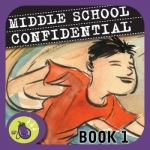
MSC1: Be Confident in Who You Are
Book and Education
App
Now for iPhone and iPad! • “As you prepare for back to school, don't forget the anxiety...[this...
